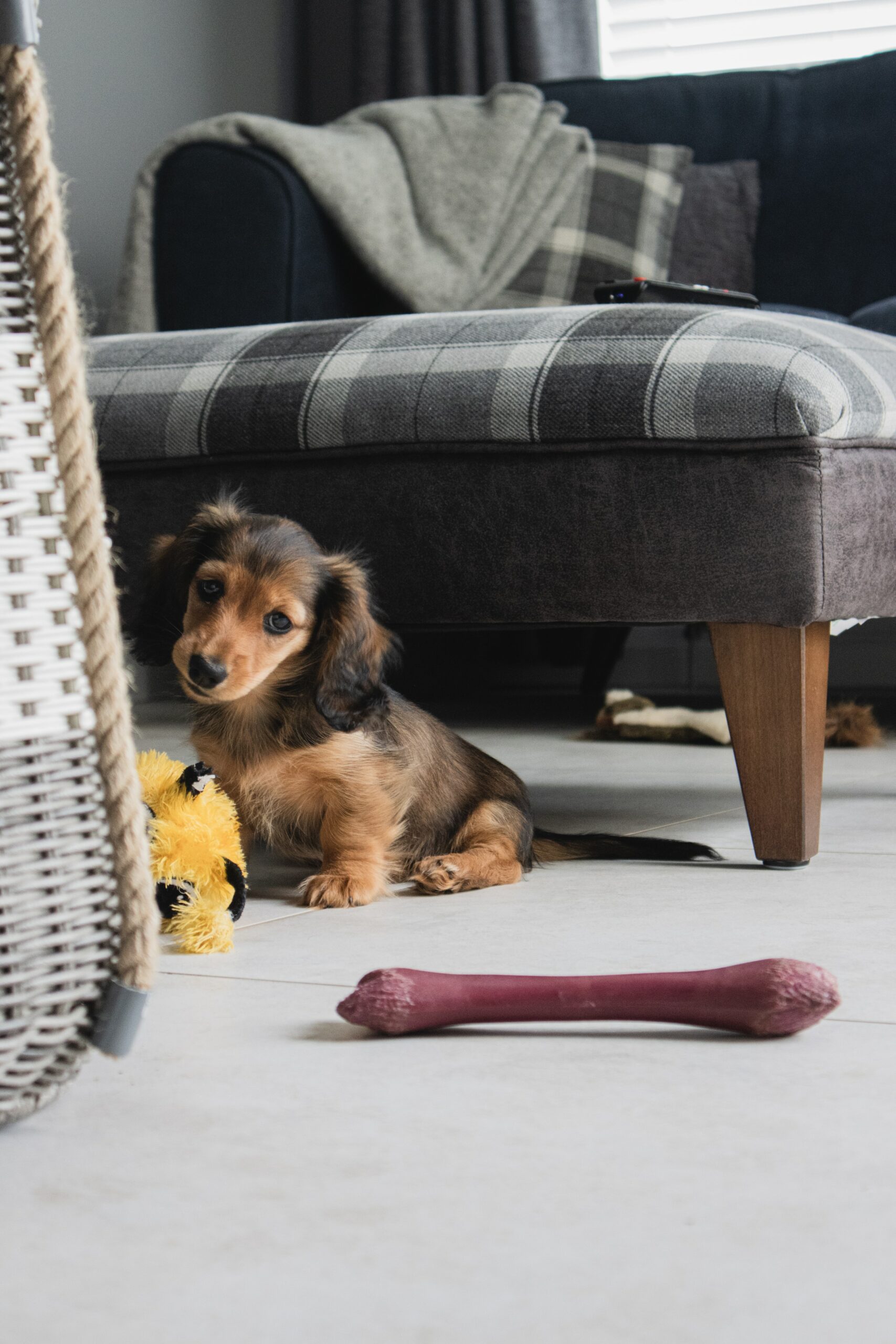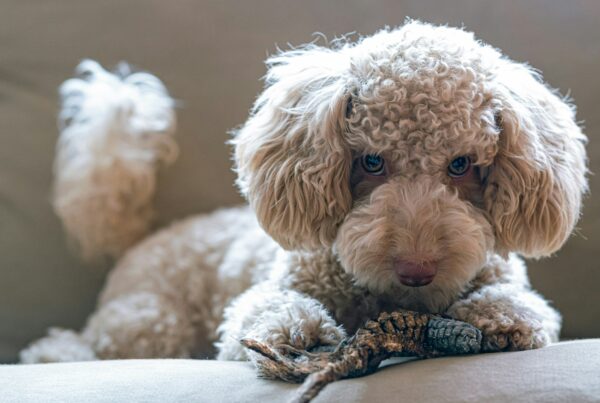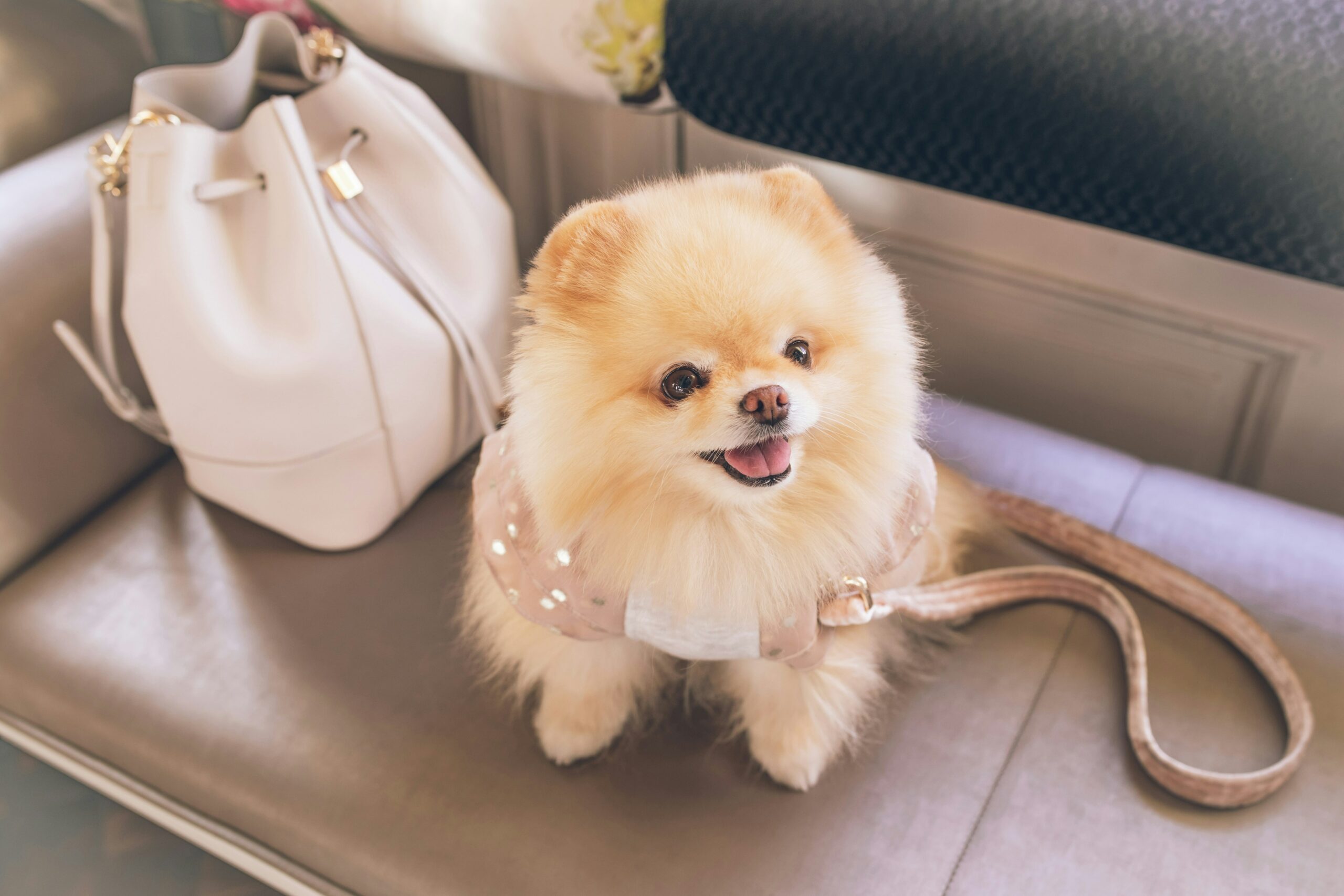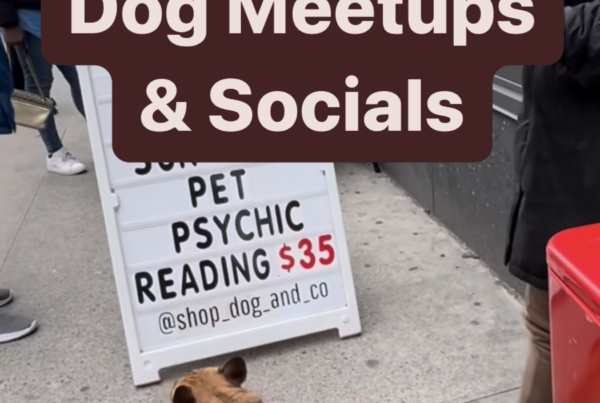Puppies seem to be born with a sixth sense that teaches them how to turn your house upside down in a short amount of time. Although a dog that makes a mess may aggravate you, this feeling doesn’t compare to the fear you’ll have if your pup gets into something that could make it sick. Since you can’t watch your dog constantly, you need to take a proactive approach to keep it safe. Here are a few ways to puppy-proof your home and ensure your pooch stays out of trouble.
Put Valuables Away
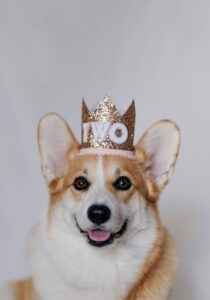
Dogs, especially puppies, think that anything you leave in the middle of the floor, such as socks, shoes or your favorite fleece fabric sweatshirt, is fair game to play with. They don’t understand that these items aren’t toys and may tear them apart if you’re not paying attention.
To keep this destruction from happening, put your personal items away. If you don’t want to take any chances, hang or fold your clothes and place them in closets or drawers. Also, don’t let kids’ toys or small objects sit out, as they could be choking hazards.
Store Medications in Safe Places
You may not realize how high your dog can jump until it sees something it really wants. For instance, your pooch may think a pill bottle is a toy and grab it off the counter. Before you even realize what happened, your dog could have the bottle torn open and half of the pills ingested, which would likely require a costly emergency vet visit to save your pup’s life.
Situations similar to this one can be terrifying for you and your dog, depending on the type of medicine. The best course of action you can take is to put all medications in a high cupboard with a latching door. Bathroom cabinets work well because pups don’t usually spend time in the restroom.
Dogs are like kids when it comes to something being out of sight. If children haven’t seen something they wanted for a while, they forget they desired it in the first place.
Hide the Garbage Can
A dog’s sense of smell is more than 10,000 times better than a human’s, so it should come as no surprise that your pup knows when you put chicken bones or another item that smells interesting in the trash. If your pooch eats from the garbage, it could suffer from something as mild as a stomach ache, which is often the outcome.
However, it could also ingest a poisonous item and pass away. Even if you avoid putting things in the trash that could harm your dog, there are a lot of toxic products you might not know about, such as xylitol, the sugar substitute found in gum and candy.
Don’t take any chances. Either put your trash can in a cabinet with childproof locks or store it in a garage or shed. Placing it outside is a bad idea because other animals may break into it and make a mess in your yard.
If you’re cleaning out cabinets or the refrigerator and have garbage lying around, consider using a baby gate to keep your dog out of the kitchen until everything is cleaned up. Your pooch’s safety should come first.
Guard Your Electronics
Consider how you’d feel if you just bought a computer and your dog knocked it on the floor and chewed the keys off. Unless you had a warranty, your new purchase would be junk, and your pup could have done a lot of internal damage by ingesting different computer parts. Unless you’re using your electronics, store them in a separate room your dog doesn’t have access to.
Additionally, if a puppy sees a cord, there’s a good chance the power cable will have chew marks on or through it. To keep the cords and your dog safe, consider hiding the cables behind furniture or using ties to run them along the wall.
As a responsible pet parent, you should implement steps to keep your pup safe. By taking these measures, you’re sure to have your property and your pooch around for years to come.
photo credit: https://unsplash.com/photos/TvPlaxUgl0o
https://unsplash.com/photos/Dhlwt-VOmeM
Love our content? Share it with a friend or link it to social media. Like short clips of cute household pets? Training tips? Follow us on instagram @nydognanny or on YouTube at nydognanny. Have some news you needs to get to dog and cat parents stat? Email info@newyorkdognanny.com with your article pitch.

